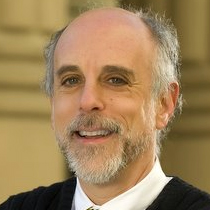
How can we help a family talk about their feelings after a brain injury?
One of the things that happens is that families will spend a whole lot of time together and they'll easily talk about basketball playoffs, baseball season, and the weather. So people will spend 24/7 together, but when you talk to each of those people individually, you’ll find out that they all feel lonely and they all feel misunderstood. This became a clinical question for us: how is it that these people are spending so much time together, but they feel misunderstood?
What we found is that they’re not communicating about important things, like their feelings. So, for example, we use questions. We give the family a checklist for them to fill out of feelings that are commonly expressed by people with brain injury and their families.
It will have feelings on the checklist that are common after brain injury. "I feel: lonely, misunderstood, discouraged, hopeless, worried." And we’ll give each person in the family a clipboard and a pencil and we’ll say to them, "We want to help you first understand what your feelings are. And we would just like you to take a moment and check off each of the feelings that describes how you feel much of the time."
Everyone in the family will have their clipboard and their pencil, they’ll read their questions and then they’ll check off how they feel. And it may seem like it’s threatening to people, but it’s actually not. They’re thinking about how they feel, they’re checking off their checklist and it’s a private.
Then we'll ask each family member to describe which items they checked off, which is why part of our process in meeting with families is to ensure they feel comfortable with us. So the mother might say, "I feel lonely, I feel misunderstood, I feel worried." And this is the first time perhaps that people have actually reflected on their feelings.
They’ll talk about their son’s ability to move around in a wheelchair or get up and down steps. Or his ability to remember to pay his bills. But they won’t talk about their feelings. So using the questionnaire people will reflect on their feelings and then through the therapeutic process discuss and describe their feelings. And maybe the son will say, "Mom, I didn’t know that you were worried too," or the father will say to the mother, "I thought our son was depressed, but I didn’t know that you were really depressed."
And the father might check off anxious or worried. And the children will say "Dad, I thought you always feel confident. I didn’t know you were worried about our future also." And what we’re doing here is a process called normalization; while these feelings can be very intense and frightening, they are common to families and individuals with brain injury; people are often feeling the same fear, the same worry, and the same discouragement, especially soon after the injury.
We have this group of people that are physically together, but they’re emotionally very distant. What we’ve done with this therapeutic process is to help them understand each other and it gives them something else to talk about; they’re experiencing the same discouragement, the same fear, the same anxiety. And while it may be a little bit painful, they’re beginning to understand that it’s normal. And part of what we do in the therapeutic process is to help the family talk to each other. And once they understand how they’re feeling, they can more readily support themselves and more effectively support themselves.
Related Resources
About the author: Jeffrey Kreutzer, PhD
Jeffrey Kreutzer, PhD a Professor of Physical Medicine and Rehabilitation, Neurosurgery, and Psychiatry at VCU. He serves as Director of Virginia's TBI Model System, a position he has held since 1987. He also coordinates VCU Health System outpatient services for families and persons with brain injury.

